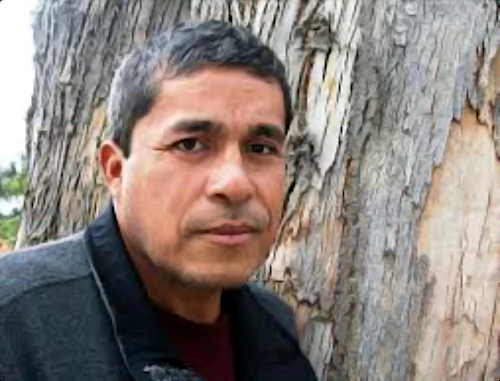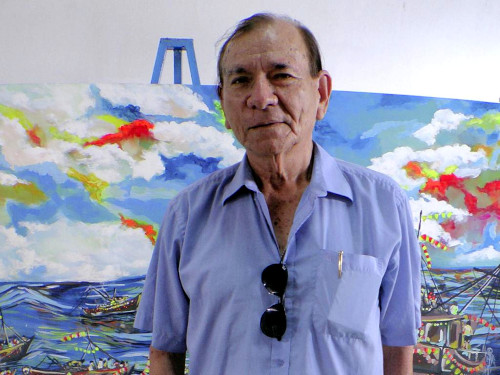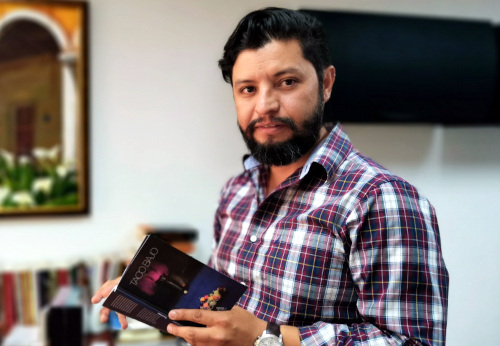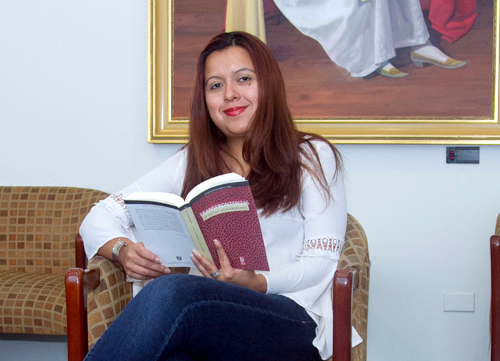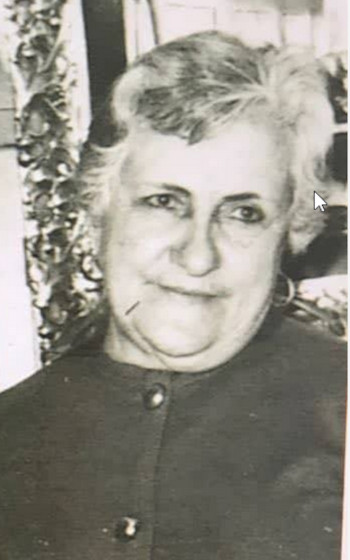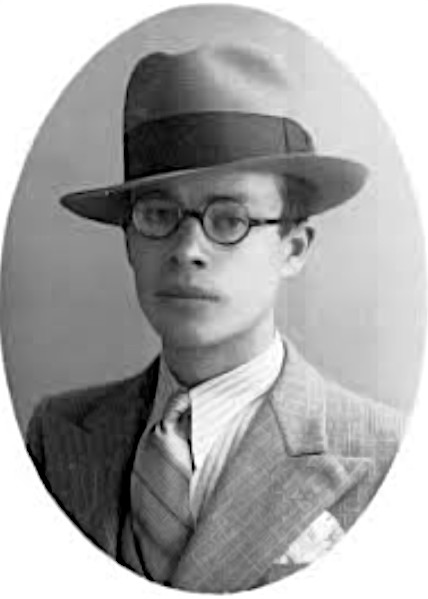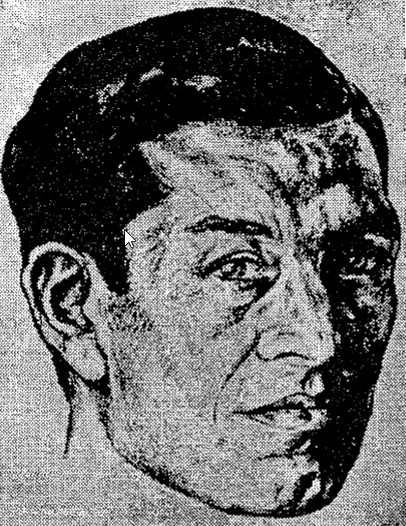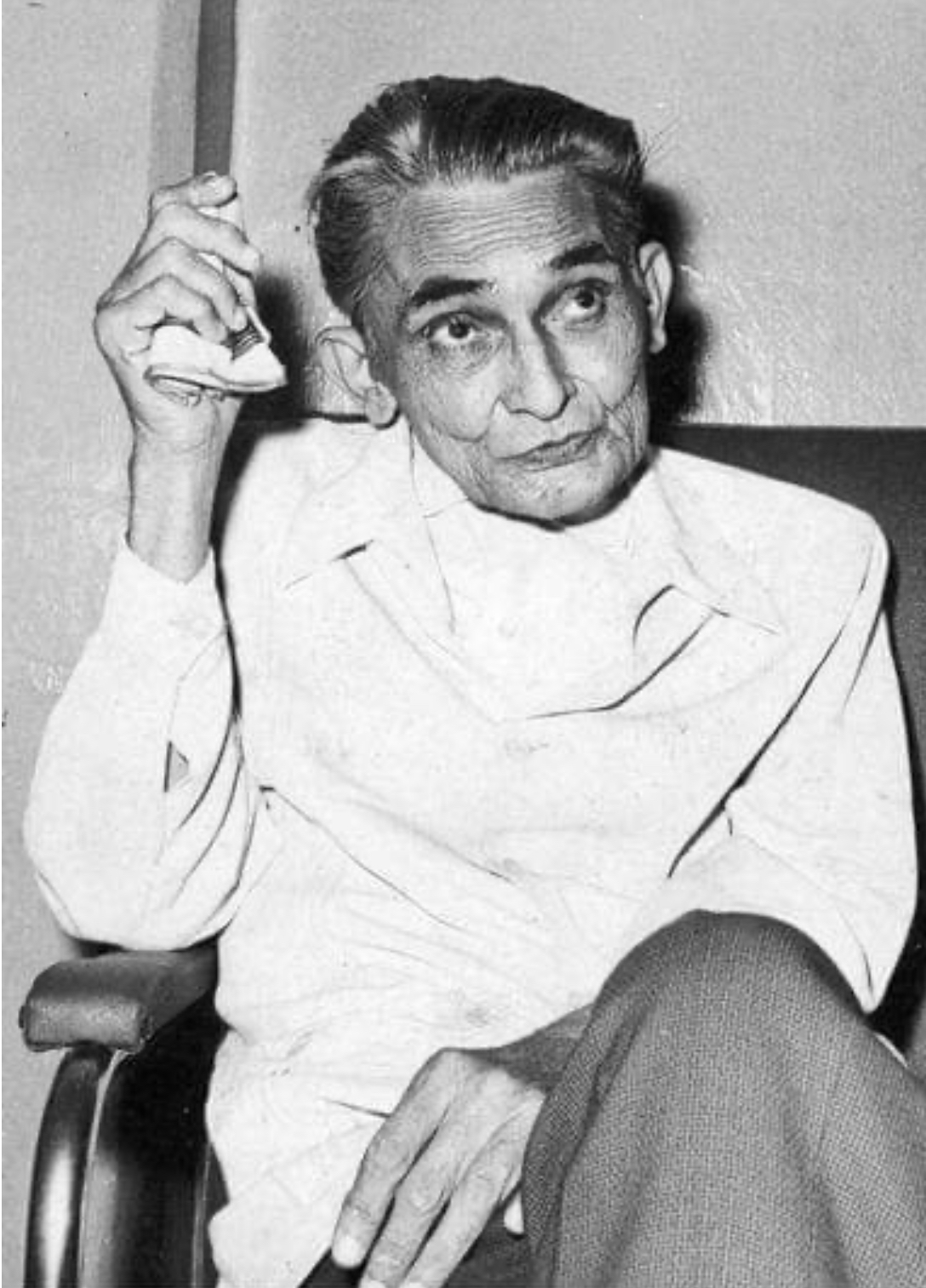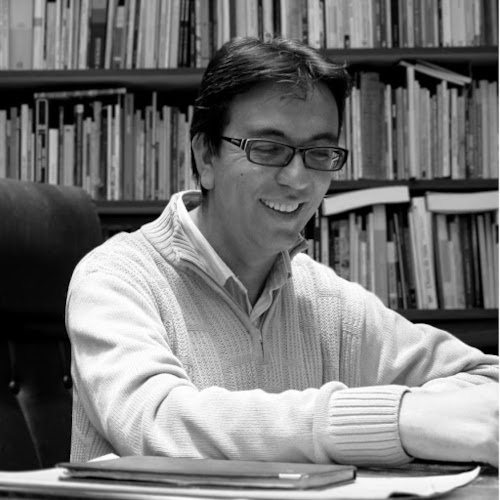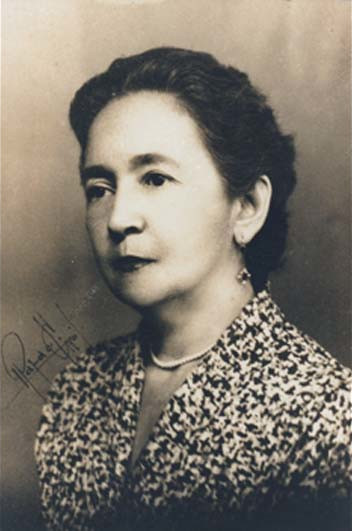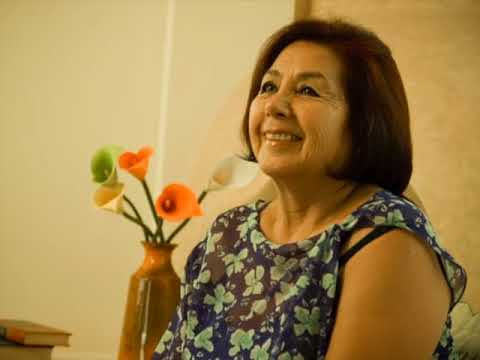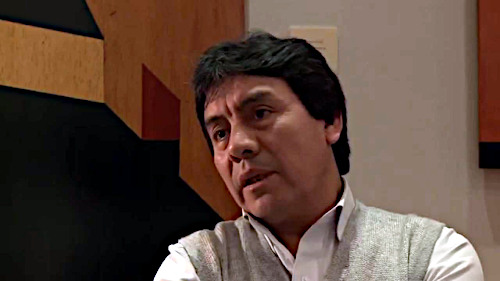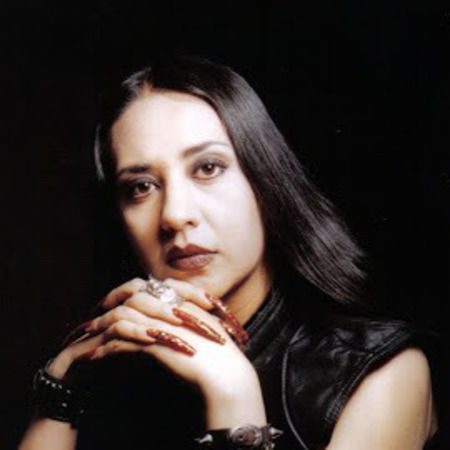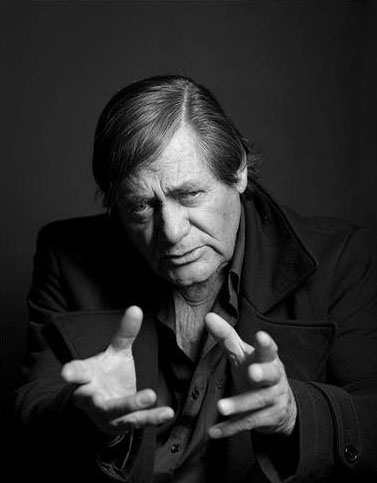Pedro Gil Flores (Manta, May, 18, 1971 – January 22, 2022) was an Ecuadorian poet and short story writer. He published his first book of poems at the age of 17, Paren la Guerra que yo no juego (1988), followed by Delirium Tremens (1993), Con unas arrugas en la sangre (1997), He llevado una vida feliz (2001) Sano Juicio (2003), 17 Puñaladas no son nada (2010) and Crónico, Poemas del Siquiátrico Sagrado Corazón (2012). In 2014 Gil published a book of short stories titled El príncipe de los canallas (2o14). He has directed a writing workshop at the Eloy Alfaro Lay University of Manabí (ULEAM). He was called the “Ecuadorian Rimbaud” by the literary historian Hernán Rodríguez Castelo. He coordinated the poetry workshop of the Portoviejo branch of the House of Ecuadorian Culture.
Continue reading “Pedro Gil Flores”Month: January 2021
Vicente Espinales Tejena
Vicente Espinales Tejena (Portoviejo, 1940) is a lawyer, doctor, painter, poet and former president of the Manabí chapter of the House of Ecuadorian Culture. He is cardiologist with a medical degree from the University of Guayaquil and earned a law degree from the Vicente Rocafuerte Secular University. He has also worked as a radio newscaster and as a university professor at the Technical University of Manabí. He has received national and international awards for his poetry.
Continue reading “Vicente Espinales Tejena”Santiago Vizcaino
Santiago Vizcaíno Armijos (Quito, 1982) is an Ecuadorian poet, novelist and short story writer. He has a degree in Communications and Literature from the Catholic Pontifical University of Ecuador (PUCE). He has worked as an editor at the newspaper Hoy, the Office of Publications of the House of Ecuadorian Culture, and the magazine Nuestro Patrimonio (Our Patrimony). In 2008 he published his first book of poetry, Devastacíon en la tarde (translated into English by Alexis Levitin as Destruction in the Afternoon) and a book-length study of the Argentine poet Alejandra Pizarnik, both of which received awards. In 2015, La Caída Editorial published a bilingual version of his short story collection “Matar a mamá/Matricide” with the English translation by Kimrey Anna Batts. In 2017 Vizcaíno published his debut novel Complejo. His second novel Taco bajo was published in 2019. Vizcaíno is currently the Director of the PUCE Center for Publications.
Continue reading “Santiago Vizcaino”Ana Minga
Ana Minga (Loja, 1984) is an Ecuadorian journalist, poet and short story writer. She has published five books of poetry. Her book entitled “Tobacco Dogs / Perros de Tabaco” (2013) is an English translation of her poems by Alexis Levitin, published in a bilingual edition by Bitter Oleander Press. Her latest and fifth poetry collection, “La Hora del Diablo,” was released in 2018. Her works have been published in Argentina, Mexico, United States, Spain and Italy. She has lived in Quito and currently lives in Cuenca.
Continue reading “Ana Minga”Benigna Dávalos
Benigna Dávalos Villavicencio (Riobamba, circa 1910 – Quito, circa 1960) was an Ecuadorian poet and composer; her most recognized work is the text for the pasillo song “Ángel de Luz,” which is also known in Peru under the name “Rayo de Luz,” popularized by the duo Las Limeñitas. In August 2018, the Museum of the Ecuadorian Pasillo was created, where a statue of Benigna Dávalos lies among the statues of 4 other legendary pasillo composers.
Continue reading “Benigna Dávalos”Atanasio Viteri
Atanasio Viteri Karolys (Latacunga, October 29, 1908-1965) was an essayist, novelist, poet, journalist and university professor. He wrote for the newspapers El Día, La Tierra and El Telégrafo. He was four times the director of the School of Journalism of the Central University of Ecuador, vice president of the National Union of Journalists, president of the Press Freedom Commission of the IV Inter-American Press Congress (Bogotá, 1946) and press secretary of the National Assembly of 1945. He is one of the “poets of Elan,” a group of Ecuadorian poets born between 1905 and 1920 representing the neosymbolism or lyrical vanguard movement.
Continue reading “Atanasio Viteri”José Alfredo Llerena
José Alfredo Llerena (Guayaquil, 1912—Quito, 1977) was an Ecuadorian poet, journalist, fiction writer, art critic and essayist. He was a member of the literary group “the poets of Elan” and is regarded as one of Ecuador’s prominent cultivators and maintainers of the modernist movement. His most notable poetry book is “Agonía y paisaje del caballo” (1934), which contains 18 of the author’s poems. He also wrote a novel entitled “Oleaje en la tierra” (1955), and a book of short stories entitled “Segunda vida de una santa” (1953). His nonfiction books are: “Aspectos de la fe artística” (1938) and “Ecuador, perfil de su progreso” (1960).
Continue reading “José Alfredo Llerena”Himno de Los Ríos, Ecuador (Hymn of Los Rios, Ecuador)
Hymn of Los Ríos Province, Ecuador. Lyrics by poet Aurora Estrada y Ayala, Music by Alcides Millán Mendoza.
Continue reading “Himno de Los Ríos, Ecuador (Hymn of Los Rios, Ecuador)”Enrique Segovia
Enrique Segovia Antepara (Guayaquil, 1901-Guayaquil, December 6, 1967) was an Ecuadorian poet. Known for his work, “América,” published in 1939, Segovia had a tumultuous life marked by addiction to morphine, cocaine, and alcohol. Rodolfo Pérez Pimentel, a prominent chronicler of Guayaquil, recalled seeing Segovia in their neighborhood during his childhood, describing him as a pale, thin, and poorly dressed figure resembling a zombie. According to writer José Ayala Cabanilla, Segovia was frequently spotted wandering the streets barefoot, clad in tattered clothing, under the influence of drugs or alcohol. To make a living, he would offer his services as a writer of love letters for a sucre each and Quinceañera speeches for 10 sucres each. A few months prior to his death, the Guayas branch of the House of Ecuadorian Culture published “Mis mejores poesías” (My Best Poems), a collection of Segovia’s poems written between 1920 and 1967.
Continue reading “Enrique Segovia”Xavier Oquendo Troncoso
Xavier Oquendo Troncoso (Ambato, 1972) is an Ecuadorian poet, editorial writer, editor and professor. He has published over 11 titles, including poetry, short stories, children’s literature and anthologies of young writers from Ecuador. In 1993 he won the Pablo Palacio Short Story Award and the National Poetry Award. In 1999 the city of Ambato awarded him the Juan León Mera Award for all his literary work. His book “Salvados del naufragio” (2005) is a compilation of his poetry from 15 years of work up to the year in which it was published. His poems appeared in English translation in a book entitled “Poems That Love Me” (2016), translated by Gordon E. McNeer. Some of his poems have also been translated into Italian and Portuguese.
Continue reading “Xavier Oquendo Troncoso”Aurora Estrada y Ayala
Aurora Estrada y Ayala de Ramírez Pérez (Pueblo Viejo Canton, Los Ríos Province, November 17, 1901 – Guayaquil, March 12, 1967) was an Ecuadorian poet, columnist, narrator, educator and politician. She is considered a major figure in Ecuadorian literature. Among her best regarded works are: Himno a la Provincia de Los Ríos, Himno al Colegio Aguirre Abad, and Canto de las Trabajadoras. In 1922 she founded and was the editor in chief of Potreo, a monthly magazine which published some of Ecuador’s best young poets of the time, such as Jorge Carrera Andrade, Hugo Mayo, Francisco Fálquez Ampuero, as well as poets from other countries, such as the future Nobel laureate Gabriela Mistral from Chile. Estrada only published 2 books during her lifetime, Como el incienso (1925) and Tiniebla: veinte trenos y una canción de cuna (1943). An anthology containing many of Estrada’s poems was published by Isabel Ramírez Estrada in Aurora Estrada i Ayala, estudio biográfico-literario y antología (1976). Most of Estrada’s poems were published in magazines and newspapers in and outside of Ecuador which have not yet been collected and published in a “complete” collection.
Continue reading “Aurora Estrada y Ayala”Ana María Iza
Ana María Iza (Quito, 1941-2016) was an Ecuadorian poet, she worked as a journalist, specifically on the radio. Her poems appeared in some of the most important poetry anthologies of Ecuador and Latin America, such as: Poesía Viva del Ecuador (1990), Diccionario de literatura española e hispanoamericana (1993), Joyas de literatura ecuatoriana (1993), and Between the silence of voices (1997). In 2015 she was honored in Poetry in Parallel Zero, an event that brings together great figures of literature to Ecuador for a week. In 2016 she was honored with a medal by the National Assembly of Ecuador.
Continue reading “Ana María Iza”Ramiro Caiza
Victor Ramiro Caiza Guamán (Machachi, April 19, 1963) is an Ecuadorian poet, essayist and cultural promoter. He is the author of over 18 books of poetry and essays. He is the former president of the House of Ecuadorian Culture’s branch in Barcelona, Spain. He has served as secretary of the Association of Poets and Writers of Catalonia, Spain. He founded and was the president of the House of Ecuadorian Culture’s branch in the Mejía Canton of Ecuador. His latest books are Mejía Festivo (2020) and Haikus Cotidianos (2020). Caiza currently lives in Quito, Ecuador.
Continue reading “Ramiro Caiza”Mayari Granda Luna
Mayari Granda Luna (Quito, 1977) is an Ecuadorian poet and a literary critic. Her poetry has appeared in several magazines, including Hoja Verde in Chile and Eskeletra in Quito. Granda Luna has also authored poetry books such as “Palabras con el eje roto” (1995) and “Noctivago” (1998).
Continue reading “Mayari Granda Luna”Antonio Ordóñez
Antonio Ramiro Ordóñez Andrade (Quito, January 23, 1943) is a poet, dramaturg, theater actor and director. He was a founder of the “Tzántzicos” group (1961-1969), actor and director of the Ensayo theater, actor of the Ecuadorian popular theater, director of the School of Dramatic Art of the House of Ecuadorian Culture (2 years), director of the School of Theater of the Faculty of Arts from the Central University of Ecuador (11 years), professor at the Faculty of Arts of the Central University (32 years), member of the Ecuadorian Institute of Theater, member of the General Board of the House of Ecuadorian Culture. Many of his early poems were published in Pucuna magazine in the 1960s. In 2014 the House of Ecuadorian Culture in Quito published his only book of poetry El demonio en el fondo de los ojos.
Continue reading “Antonio Ordóñez”
